Reply To:
Name - Reply Comment
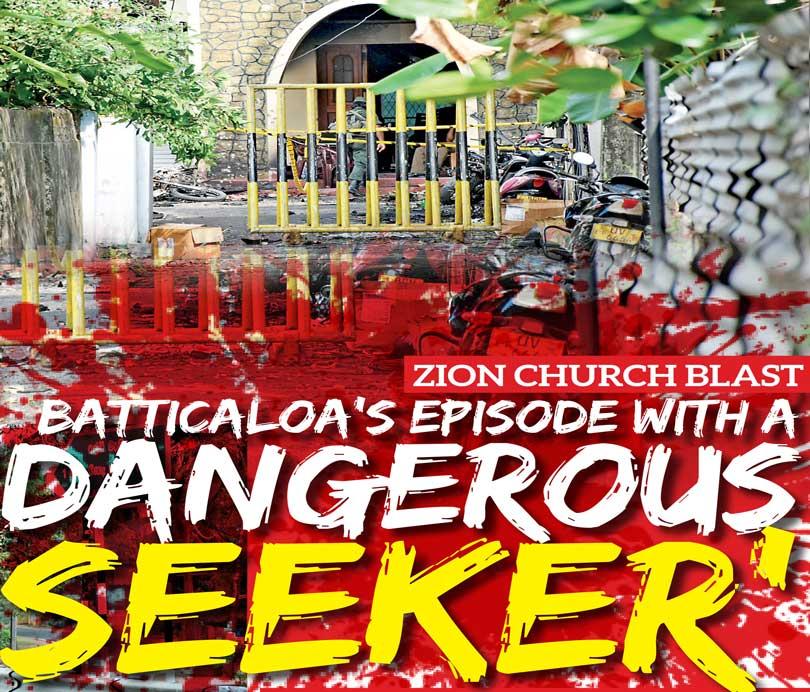
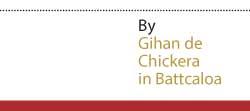 On April 22 (Monday) the final rites of 12-year-old Sharon Steven, his 10-year-old sister Shara Ebshiba, and their 13-year-old friend Jenakshika Thivenithan were held in Batticaloa, along with the funerals of 23 other victims of the Easter Sunday bomb attack that claimed the lives of 29 people in Zion Church. A total 14 children (7 girls and 7 boys) and 12 adults have so far been identified as having lost their lives in what was confirmed as a suicide bombing. The bodies of the two victims remain unidentified. The remains of the deceased have been sent for DNA testing, while the remaining body is that of the suspected suicide bomber, police said.
On April 22 (Monday) the final rites of 12-year-old Sharon Steven, his 10-year-old sister Shara Ebshiba, and their 13-year-old friend Jenakshika Thivenithan were held in Batticaloa, along with the funerals of 23 other victims of the Easter Sunday bomb attack that claimed the lives of 29 people in Zion Church. A total 14 children (7 girls and 7 boys) and 12 adults have so far been identified as having lost their lives in what was confirmed as a suicide bombing. The bodies of the two victims remain unidentified. The remains of the deceased have been sent for DNA testing, while the remaining body is that of the suspected suicide bomber, police said.
The Batticaloa Hospital reported that 69 injured persons were admitted for treatment Seven are in a critical condition and are undergoing treatment in the Surgical Intensive Care Unit (SICU). “The patients are stable, but not improving,” said Batticaloa Teaching Hospital Director, Dr. Kalaranchane Ganeshalingam. A further 57 victims, including 12 children, are being treated in several surgical wards in the hospital, mostly for burn injuries, pellet wounds and compound fractures, according to Dr. Ganeshalingam. Medical sources said several victims had to also undergo open abdominal surgery to prevent excessive bleeding due to injuries sustained to the liver and the spleen. Those with less serious injuries were treated and discharged after their conditions became stable. Medical sources estimate that between 120 to 150 persons were treated on that ‘bloody’ day.
Incidents reported
Medical teams had to conduct about 30 to 35 emergency surgeries in the hospital’s Accident and Emergency Services section, as victims were rushed in between 9.30 am and 12.30 pm on Sunday. “A further 15 surgeries were conducted overnight,” said anaesthetist Dr. S. Mathanalagan. A further 2 persons were transferred to the Kandy and Anuradhapura hospitals to undergo neurosurgical operations for spinal cord and head injuries sustained due to pellets, Dr. Mathanalagan added. However, despite all efforts to save lives, 10 persons died on admission, Chief Nursing Officer Mr. Nagagamani Kanagarajah said. He added that 15 bodies were brought in directly to the hospital on the day of the attack, and another body the following day.
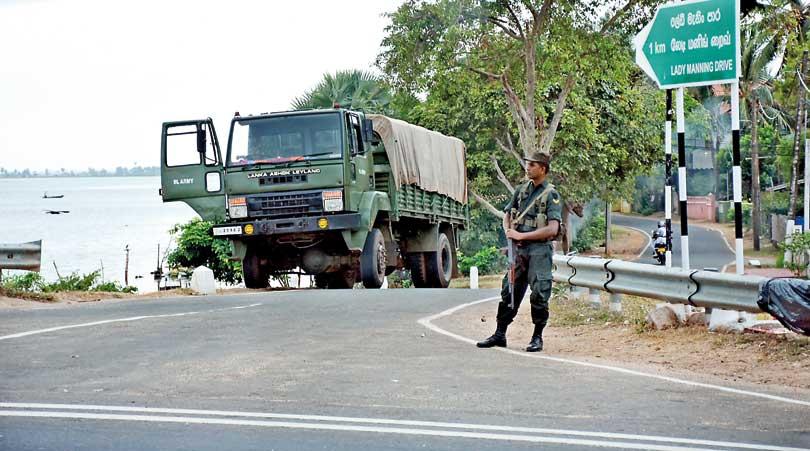
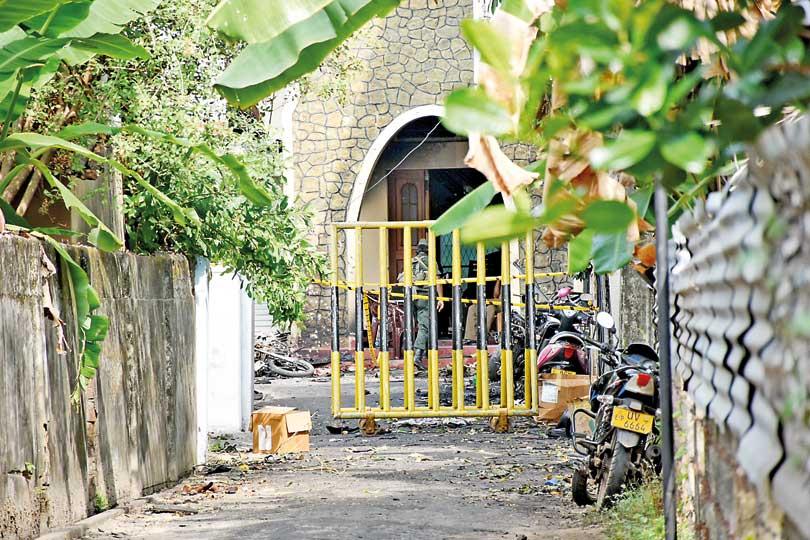
Doctors and nurses who were on New Year vacation in their hometown Batticaloa joined the regular staff to offer support, as bomb victims were rushed in. Medical staff said fears of another possible bomb attack emerged as large crowds gathered at the hospital. “The military was summoned to cordon off the premises and check those present and control the crowd,” a doctor revealed.
Pastor Kumaran’s son was among the children who died in the explosion
According to Batticaloa Division Police Superintendent Nuwan Mendis, on April 22, postmortems were conducted on 26 victims, and their bodies were released to relatives for the final rites to be performed. “Fifteen of the victims were female, and 11 were male; among whom there were 14 children. Two bodies are yet to be identified,” Superintendent Mendis said, adding that “DNA tests would be done to confirm their identities”. He said that the head of the suspected bomber was found on the roof of a house near the church, and police investigators were trying to identify the bomber through CCTV footage and other methods.
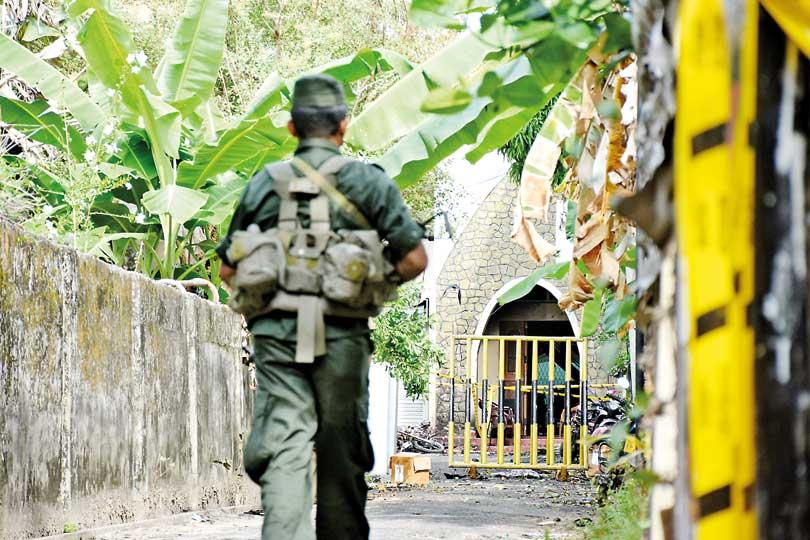
As the appearance of many of the victims were altered due to the blast, the bodies were kept in closed coffins, with relatives being offered a glimpse of their loved ones who had passed away, before laying them to rest, residents said. People opined that the authorities had been concerned that the sight of the bodies in open coffins could stir emotions and spark unrest. A tense atmosphere prevailed in Batticaloa and some incidents were reported despite a heavy police and army presence. In one incident two boats belonging to Muslim fishermen were burnt near the Kallady Bridge, residents said. There was also some incidents of unrest reported at the border between Navathkuda and Kathankudi, residents said. Superintendent Mendis said that 1600 police personnel had been deployed to provide security, in addition to Special Task Force (STF) and Military personnel patrolling the area. “We want to ensure that peace prevails and no violence occurs as a response to these attacks. We don’t want the bad experiences of the past to repeat. All clergy of all faiths in the area should work together to prevent the occurrence of any untoward incidents,” he said.
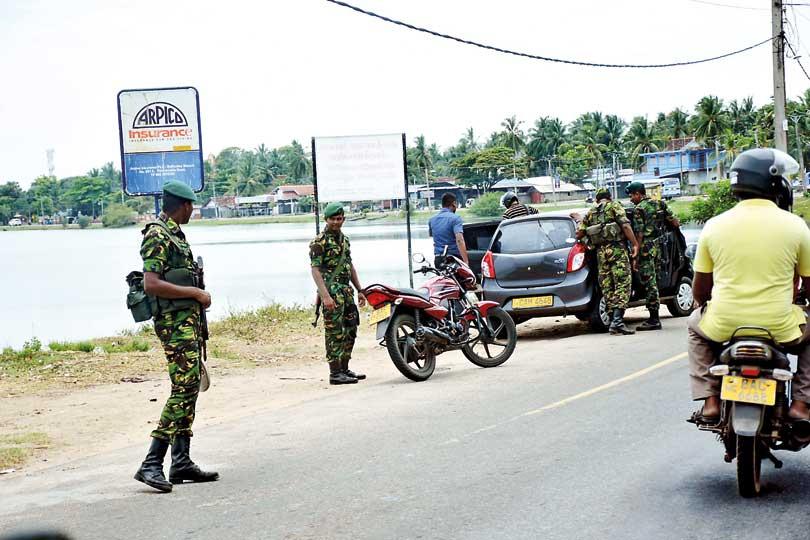
The bomb attack had occurred around 9 am at Zion Church on Central Road in the heart of the town, just as mass was about to begin. Residents said a suspicious character had first gone to the St. Mary’s Catholic Cathedral on the same road opposite St. Michael’s Boys’ School at 8.30 am and made inquiries about the mass there. A Catholic priest said the suspect had been seen lurking around the Cathedral the previous day as well. “The priest in charge had called the Easter Service early, and began at 7 am instead of 7.30 am. So by 8.30 am most of the congregation had left,” he said, adding that almost 1000 persons had attended the Catholic mass on Easter Sunday.
The suspect’s suspicious questioning and demeanour had resulted in Brother Stanley trying to lead him out of the church premises. The man had then reportedly tried to force his way into the church
When the suspect learnt that the Catholic mass had ended and that the bulk of the congregation had dispersed, he had made his way to the smaller Zion Church about 50 metres down the road, raising speculation that his initial target had been the St. Mary’s Cathedral, residents said.
‘Umar’
Relating his encounter with the suspect, Pastor Ganeshamoorthy Thirukumaran, or Pastor Kumaran, of Zion Church said: “I noticed a person standing near the pastor’s office, with a bag on his shoulder and clutching another bag to his chest. I asked him who he was, and why he was standing there. He replied that he had just come to observe what was happening at the church and asked me details about the church.” Upon further questioning, the man, who looked in his 30s and was of medium height, had identified himself as ‘Umar’ from the nearby Oddamaavadi Town, Pastor Kumaran said. “I then invited him into the church, as I thought he was like the many new people who come to our church. So I didn’t have any doubts or suspicions about him,” Pastor Kumaran added.
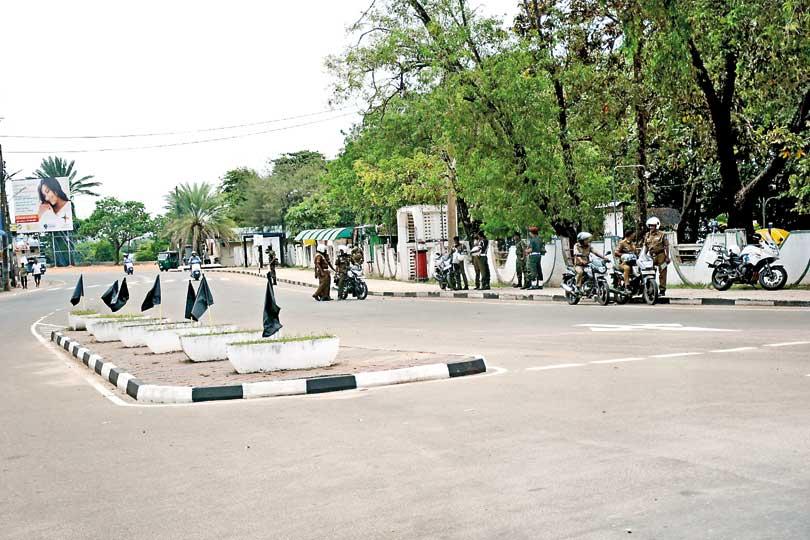
Pastor Kumaran had then told another a senior worshipper, Brother Stanley, to speak to the man, and had left with his wife and youngest daughter to lead mass in another church in Karavatti, west of Batticaloa. At the same time several children, including Pastor Kumaran’s second son, 14-year-old Shalom Malkiah, were outside the church, having their Sunday school breakfast before mass began.
The suicide bomber had apparently targeted St. Mary’s Cathedral, but he failed to realise his goal
The suspect’s suspicious questioning and demeanour had resulted in Brother Stanley trying to lead him out of the church premises. The man had then reportedly tried to force his way into the church. When his path was blocked he had reportedly detonated the bomb just outside the church and close to the children. Pastor Kumaran’s son was among the children who died in the explosion. Residents believe that if the man had managed to enter the church building-which comprised 2 floors- and had about 500 worshipers inside, the death toll would have been higher.
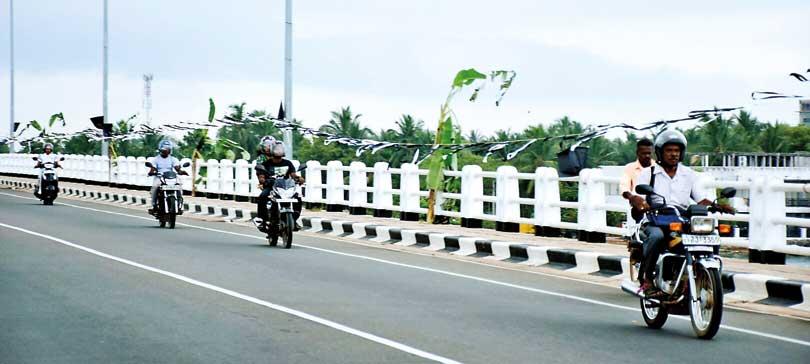
A heavy military and police presence continue in and around Batticaloa, with several checkpoints being set up and the military and police patrolling the area – bringing back images of the wartime in the Eastern Province. Although curfew was imposed at 8 pm on Monday, shops had their shutters up from early evening. Some shops were closed the whole day. Black and white flags were displayed along the main road from Oddamaavadi to Valachennai and Chenkalady, leading into Batticaloa town. In the Navathkuda area banners displayed outside churches and homes and in public places, mourning the Easter Sunday deaths that have shocked a community and a country.
Pics by Kushan Pathiraja